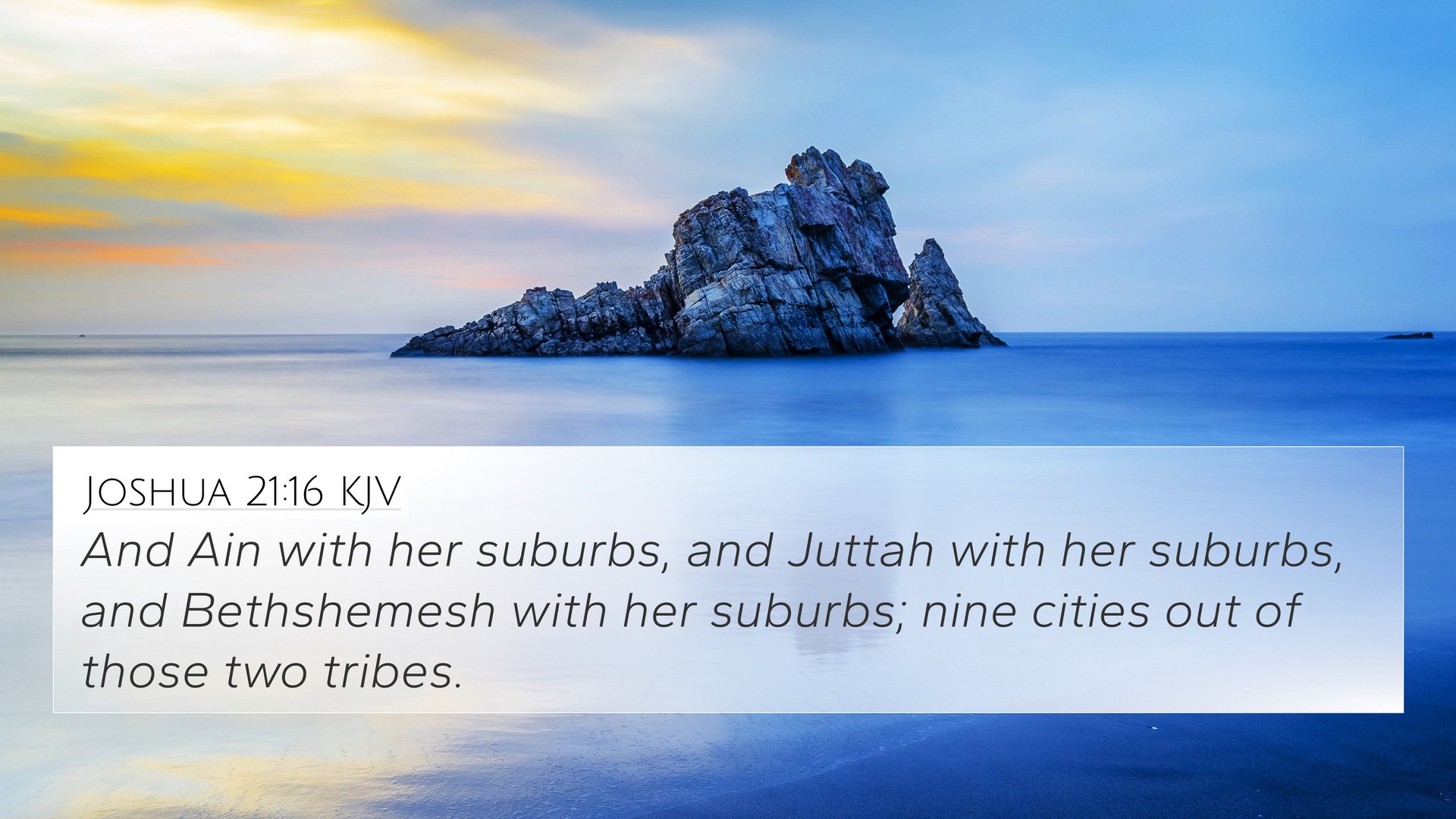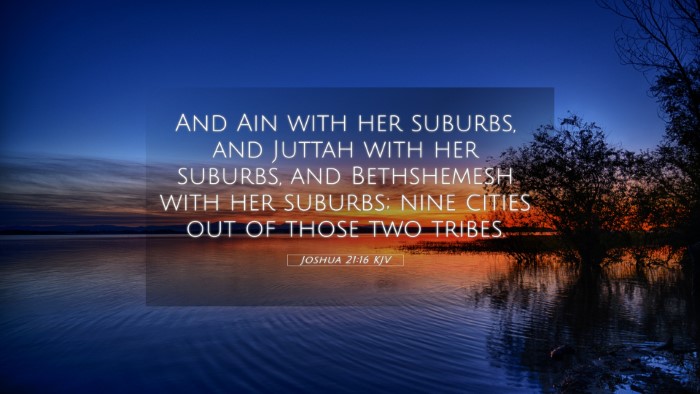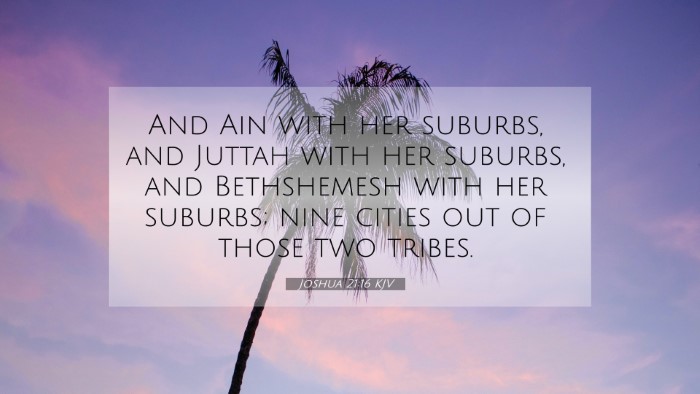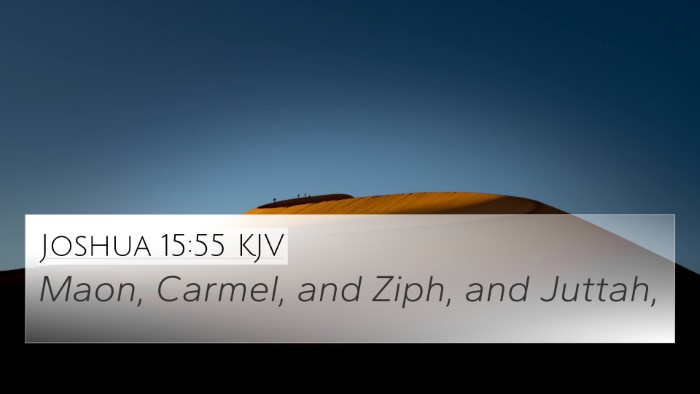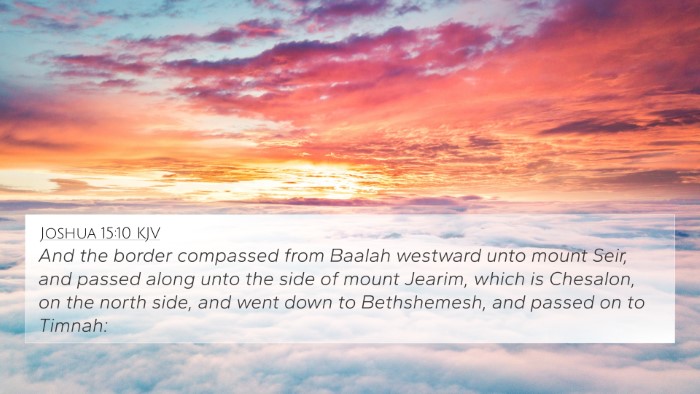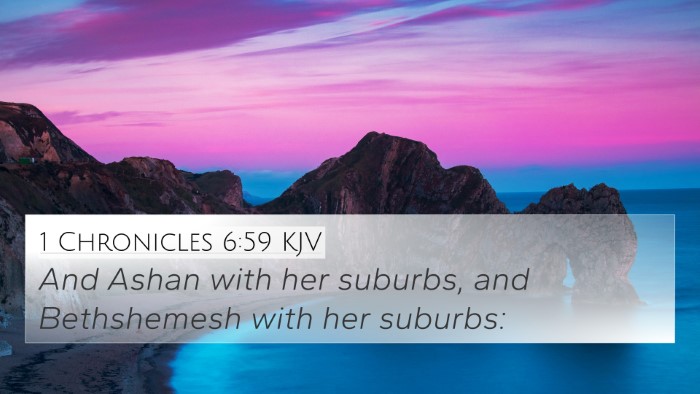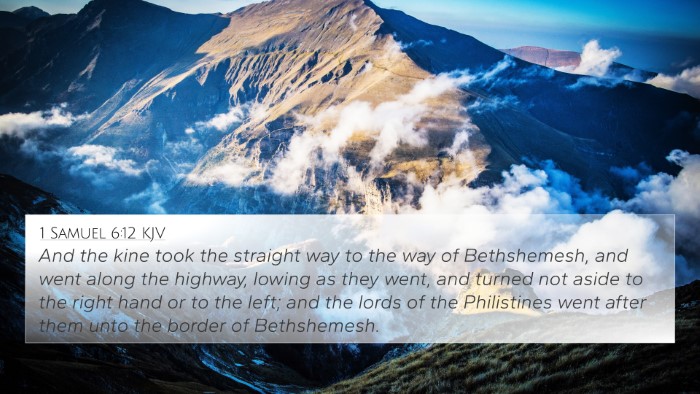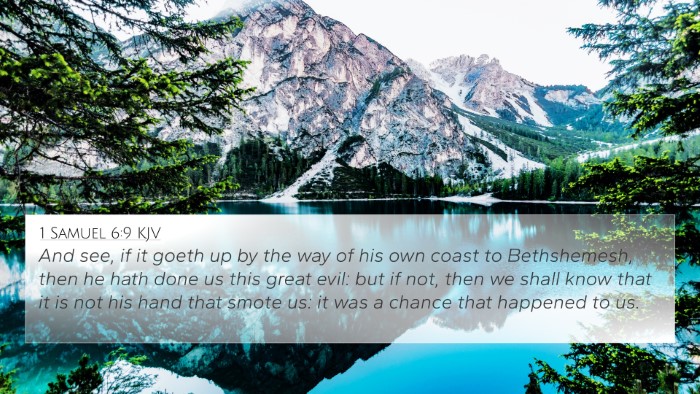Understanding Joshua 21:16
Verse: Joshua 21:16 - "And from the tribe of Benjamin, Geba with her suburbs, and Aleph, and the city of Aijalon with her suburbs."
Context and Significance
This verse is part of a larger narrative in the book of Joshua, where the division of the Promised Land among the tribes of Israel is being recorded. Specifically, it speaks to the allocation of cities to the Levites, who were set apart for religious duties and service. The cities mentioned—Geba, Aleph, and Aijalon—were designated as Levitical cities, which had special importance for the spiritual and community life of Israel.
Commentary Insights
-
Matthew Henry:
Henry emphasizes the meticulous nature of God’s distribution of land, aligning with His promises to the tribes of Israel. He notes that these cities not only served as residences for the Levitical priests but also maintained the religious fabric of society by providing places for sacrifice and teaching God's law.
-
Albert Barnes:
Barnes provides insights into the geographical and historical importance of the cities named in this verse. He explains that Aijalon, for instance, is notable for its mention in later battles and indicates a point of contention that reflects on Israel’s spiritual and political struggles.
-
Adam Clarke:
Clarke highlights the implications of these Levitical cities on community stability, providing safe havens for the Levites who were often without a designated inheritance. He connects this to the broader theological idea that God’s provision ensures guidance and support for His people through their ministers.
Thematic Connections
The selection of cities for the Levites serves to illustrate broader themes within Scripture regarding God's provision, order, and the sanctity of worship. God's meticulous care in assigning cities connects deeply with the concept of the priesthood and its role in Israelite society.
Cross-References
Joshua 21:16 can be connected with several biblical passages that expand on the themes of inheritance, priesthood, and community. Below are some notable cross-references:
- Numbers 35:2-8: Instructions for cities of refuge and Levitical cities.
- Deuteronomy 18:1-2: The Levitical priests having no inheritance among their brethren.
- Joshua 13:14: The Lord's provision for His servants, emphasizing the Levites’ unique status.
- 1 Chronicles 6:54-81: A detailed genealogy and the listing of Levitical cities.
- Hebrews 7:14: The significance of the Levitical priesthood in the context of Christ's eternal priesthood.
- Matthew 5:5: The Beatitude stating, "Blessed are the meek, for they shall inherit the earth," reflecting God's promise of inheritance.
- Luke 10:1-2: Jesus sending out the seventy-two, drawing parallels of ministry and servitude.
Conclusion
Joshua 21:16, through its allocation of cities to the Levites, offers profound insight into God's design for community and worship. Through cross-referencing with other biblical texts, one can draw connections between the Old and New Testament teachings, illustrating the continuity of God’s purpose throughout Scripture.
Further Study Suggestions
For those interested in deepening their understanding of biblical texts through cross-referencing, there are several tools and methods available:
- Bible Concordance: A dictionary of terms that helps locate specific verses quickly.
- Cross-Reference Bible Study: Methods to analyze thematic connections between verses.
- Bible Reference Resources: Guides to help uncover related verses and themes.
- Finding Cross-References: Look for similar words, themes, and narratives across both Testaments.
